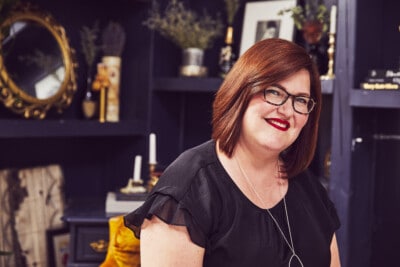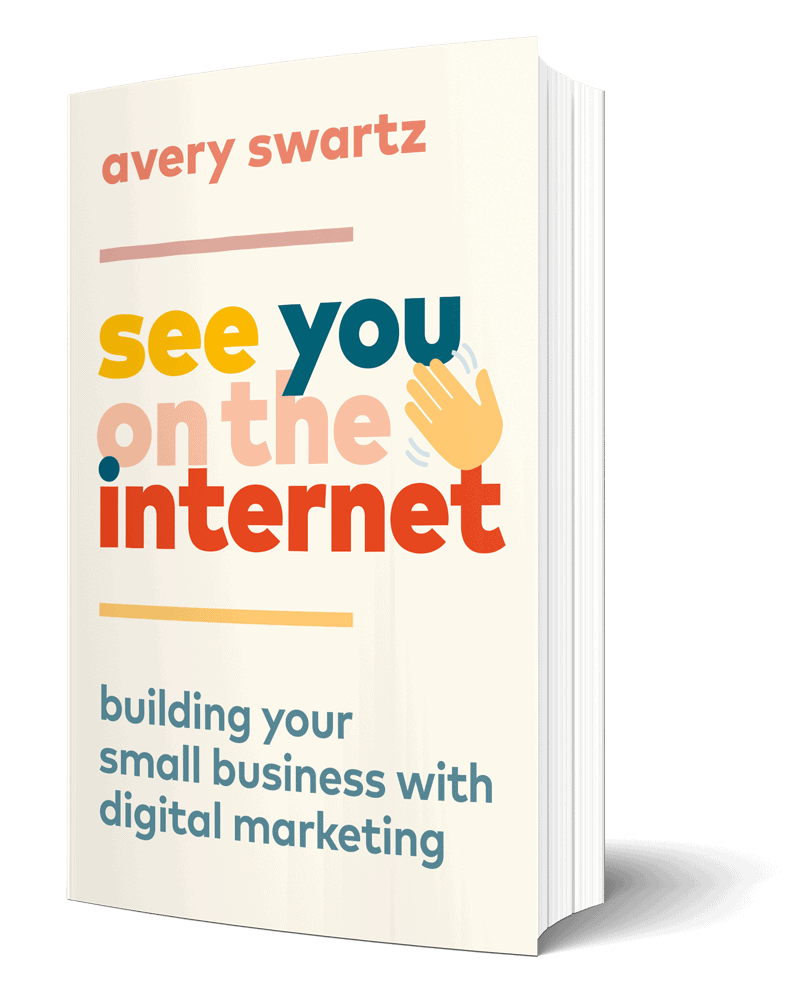Avery Swartz is the founder and CEO of Camp Tech, Toronto’s popular tech workshop company for non-technical people. Swartz was ranked number 5 on Search Engine Journal’s Top 50 Women in Marketing list, and regularly lends her expertise to Chatelaine, Today’s Parent and The Globe and Mail. An absolute pro in digital marketing, it’s no surprise that her new book, See You on the Internet: Building Your Small Business with Digital Marketing is receiving high praise in advance of its official launch date next month.
In See You on the Internet, Swartz gives small business owners (or whoever is curious) an easy-to-digest concise resource for tackling digital marketing in an ever-shifting tech world. Whether you’re a beginner to SEO and social media, or someone who has been a leader in the industry for over a decade, a quick read through See You on the Internet will have you absorbing plenty of helpful tips on how to improve your online presence, and grow your business.
We asked the bonafide internet expert our most pressing questions about everything from current trends, to how we can best prepare our children for the digital world.
Your book covers a lot of bases—what’s the number one question you are most asked? From students at Camp Tech, or colleagues online.
Yes! There’s so much to digital marketing, and I tried to address it all in a holistic way in the book, so readers can see how the pieces fit together. That being said, the number one question I am often asked is along the lines of “how do I know my marketing efforts are working?” I made sure See You on the Internet answers this question by including the 5-step framework I use with my clients, and that we teach at Camp Tech workshops. In addition to learning a bunch of new marketing techniques, this is what I hope people will really get out of the book: the confidence to know what’s working, what’s not, and how to change it.
If the rules of Google analytics are always changing, is anyone a true SEO expert?
Google’s search algorithm changes so frequently, it definitely keeps SEO professionals on their toes. There’s a lot of SEO that’s technical, but the core fundamentals stay the same. Google and other search engines are trying to best understand the intention of the person who’s doing a search, and deliver the most relevant results. If you keep that idea at the centre, then quality SEO efforts will continue to work, regardless of the changes. Offering great content on your website that’s valuable to your target customer or client is an SEO strategy that will never go out of style.
In your book, you recommend that people (and businesses) choose 1-2 social media platforms, and do them well, instead of trying to do everything. How should someone go about choosing which platform to be on?

Do you think we’ve hit peak Internet?
I think there’s a definite sense of tech exhaustion happening right now. In many ways, this is a good thing. People are reevaluating their relationships with technology, and I think we’ll see continued dialogue about the way we integrate technology into our lives in a healthy and thoughtful way.
When you look back over the past ten years, what—in your opinion—are the biggest shifts?
10 years on the internet feels like an entire lifetime, doesn’t it? If I had to zero in on the biggest change in the last decade, I’d say it’s the rise of mobile devices. It’s hard to underestimate the impact of smartphones on society. We’re all walking around with incredibly powerful computers in our pockets, and we’re connected at all times. It’s wild. The smartphone made the internet a personal experience.
What are the biggest mistakes that people make on the internet that baffle you?
I’m baffled by how much personal information people share online, particularly about their children. After reading about how people’s photos of their children posted to Flickr were added to a database to develop facial recognition technology, I swore I would never post a photo of my kid’s face online again.
What has the Internet been really good at achieving?
The internet in general, and social media in particular, has connected people in an unprecedented way. Sometimes that connection is exploited and used in terrible ways, and sometimes it’s used for social good. The internet is a mirror of society, really.
What’s your best advice for parents, when it comes to protecting /educating their kids about the Internet?
I think it’s super important for parents to increase their own media literacy skills, through quality sources like MediaSmarts. I also think it’s important to have open conversations with your kids about digital literacy and the internet. It’s not a one-and-done talk; it’s an ongoing dialogue about what’s happening online that evolves as the child grows. I think the worst thing you can do is try to ban the internet, or think that you can outsmart your kids. Instead, trust them and guide them.
What was it that initially got you excited to really dive into this field and become an expert?
I’ve always been a nerd, so there are some technical aspects of my work that really appeal to me. The part of my job that brings me the most joy though is helping people feel more comfortable around technology. When I can explain something in a way that helps a non-technical person to really “get it”, I feel so happy!
What excites you now?
I’m excited to see digital marketing tools getting easier and easier for non-technical people. The barrier to entry is lower than ever before. Small businesses, hobbyists, side hustlers, non-profits… anyone who wants to build a website, or promote on social media, can do so now without having to learn to code. It’s really powerful.
When you imagine the tech world in ten years, what do you envision?
Oh gosh, this is a hard question! Tech moves so fast, it’s almost impossible to picture what it will be like in 10 years. I think we’ll see technology seamlessly integrating into every aspect of our lives. I hope some things, like smart home devices, will be easier to set up and use, and that they’ll be safer and more private. Also, in a way, I hope the progression of technology will help us to see its limitations. That’s one of the things I love about technology – it helps me to appreciate all the non-technical things in life that I love, like art and books.
CONTEST!



 Follow Us On Instagram
Follow Us On Instagram
